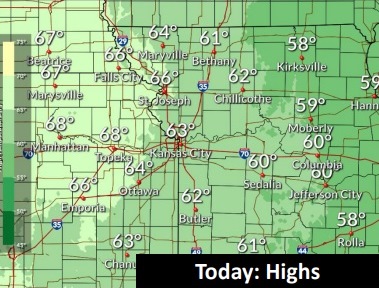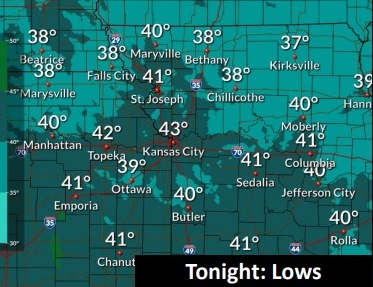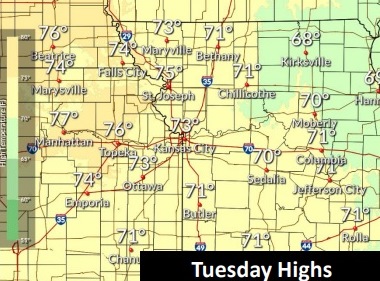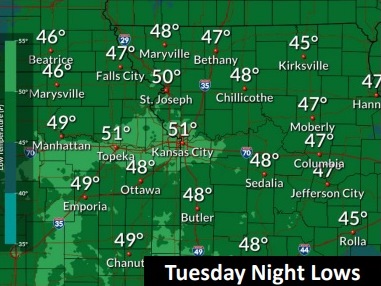This year could see a surge in provisional ballots, a special fail-safe ballot designed to ensure that every vote counts, because some voters are worried their mail-in ballot could get lost.
by Aviva Okeson-Haberman and Peggy Lowe, Kansas News Service
More than a quarter of the 29,000 provisional ballots in Kansas were rejected in the 2018 general election because of various errors, leaving 7,692 voters out of the democratic process.
Provisional ballots are supposed to be a fail-safe, protecting voters from disenfranchisement due to an administrative error or other problems.
About one in four of the 29,000 provisional ballots cast in Kansas in 2018, out of more than a million total cast, were not counted because election officials found errors with the ballots ranging from a lack of voter registration to not signing an envelope, which are required by state law.
Yet election experts anticipate higher numbers of provisional voting in the Nov. 3 election, partly due to voters requesting an advance ballot by mail but then reconsidering and deciding to vote in-person. While provisional ballots made up a small slice, about 2.7% of all votes cast in Kansas in 2018, they can make a difference in tight races. Kansas voters are deciding on a high-stakes U.S. Senate seat, as well as all four congressional seats.
Basehor resident Sheila May-Turner’s ballot was rejected in 2018 because two ballots were put in one envelope, according to election records. She doesn’t recall doing that, and is confused about why her ballot was rejected.
“I think that’s totally unfair that my vote didn’t count,” May-Turner said. “I mean, it makes me kind of angry actually. It’s a crock.”
May-Turner is voting in person this election because she said she distrusts the U.S. Postal Service.
Leavenworth resident Louis Givens said he was angry when he heard his 2018 provisional ballot wasn’t counted. Voting records indicate it was rejected because Givens wasn’t registered to vote, although he thought he was.
“I look at it like I didn’t get the chance to participate, you know?” Givens said.
Provisional ballots might be rejected because a voter didn’t provide ID, didn’t sign the ballot envelope or the signature didn’t match what’s on record. About 80% of ballot rejections in the Kansas 2018 general election were the result of a person missing the voter registration deadline, according to the federal Election Administration and Voting Survey data.
Kansas leads U.S. In use of provisional ballots
Kansas had one of the highest provisional ballot rates in the country in the November 2018 election, according to an analysis by KCUR. About 2.7% of all ballots cast were provisional in Kansas, according to Election Administration and Voting Survey data.
But even that small number of votes matters when races come down to very tight margins. For instance, in a Kansas Legislature primary in August, Democrat Aaron Coleman eked out a win by 14 votes after provisionals were counted. (Coleman has admitted to bullying and blackmailing girls while in middle school, according to the Associated Press.)
In Johnson County, more than 3,300 voters had cast provisional ballots, as of Oct. 23. About 84% of those voters were mailed a ballot, according to Connie Schmidt, Johnson County Election Commissioner.
“If there’s a close race on election night here in Johnson County, and we have, let’s say 10,000 to 15,000 provisional ballots then the provisional ballots easily could change the outcome of races,” Schmidt said.
A federal law spurred by voting issues in the 2000 election requires states to provide provisional ballots to any voter whose eligibility is uncertain. This protects voters from disenfranchisement due to an administrative error, like when Kansas City Mayor Quinton Lucas was incorrectly told he wasn’t on the voter roll earlier this year after a worker accidentally mixed up his first and last name.
Top county election officials in Leavenworth, Miami and Johnson counties said the biggest misconception about provisions is that they won’t count.
“A lot of people are afraid of the term provisional,” Schmidt said. “They hear that word and they immediately don’t want to cast that ballot …There’s a perception in the media nationwide that provisional ballots are only counted if there’s a close race.”
While provisional ballots aren’t included in unofficial election night results, ballots are counted during the county canvass. The extra time allows election officials to verify if a voter is eligible to have their ballot counted. It also gives the voter time to bring in their ID if they forgot to on Election Day.
“It’s just a way to make 100% sure that we’re doing everything we need to do to make sure everything’s still safe, secure and lawful,” Miami County Clerk Janet White said.
Worries of voter disenfranchisement
A sharply contested GOP primary for governor in 2018 that included a flurry of attention around provisional votes sparked Davis Hammet’s interest in the topic. Hammet is the founder of Loud Light, a Topeka, Kansas, group focused on voter engagement and increasing the number of young people who turn out to the polls.
Hammet wants Kansas lawmakers to change state law and allow ballots to count even though a voter missed the registration deadline. Hammet wasn’t able to rally enough support for this idea during the 2020 legislative session.
Kansans fill out a voter registration card if they vote provisionally, Hammet reasons, so if a provisional ballot isn’t counted because the voter wasn’t registered, the voter is put in the system for the next election.
“I kind of joke that Kansas does have same-day voter registration, but your vote doesn’t get to count,” Hammet said.
Eisenhower Middle School teacher Annastasia (Logan) Glover’s experience is a good example of Hammett’s concern. Their 2018 ballot wasn’t counted after they moved back to Leavenworth County after college, but missed the registration deadline.
“It was very disappointing to see that despite so much effort on my part, my voice wasn’t heard,” Glover said.
If you move to another county, even if it’s a couple of miles away, and don’t update your registration then your vote won’t count. Almost 4,000 ballots were tossed out for that reason in the 2018 general election. There’s an exception if you changed counties within 30 days of the election.
But if you move within a county and forget to update your registration, your provisional ballot will count for the races you’re eligible to vote in.
Kansans have to be registered 21 days before an election. Twenty-one states offer same-day voter registration, but not Kansas, according to the National Conference of State Legislatures.
Johnson County’s Schmidt said same-day registration requires a “different model of election administration” because of processing work. It can also be a challenge for election officials trying to figure out turnout and staffing plans with voter registrations numbers in flex.
“If anybody can come and they don’t have to be a registered voter, we don’t have a good way of knowing how many people are coming to each voting location,” Schmidt said.
‘I was determined to vote’
The surge in mail ballot requests because of the pandemic might end up translating to more provisional votes if voters change their mind and decide to vote in-person, according to Eliza Sweren-Becker, a lawyer focused on voting rights at the Brennan Center for Justice.
“Jurisdictions should prepare for a surge in provisional voting due to delays in processing of voter registration applications, voter confusion resulting from polling site closures and consolidation, and unfamiliarity with absentee voting,” according to a March report from the Brennan Center.
Kansas’ August primary saw a 66% increase in provisional voting compared to the August 2018 election, according to data from the Secretary of State’s office. That’s because the recent election saw higher turnout numbers, and the overall share of votes cast provisionally, however, only ticked up slightly.
On a chilly Saturday morning a week before the election, a steady flow of voters cast provisional ballots at the Johnson County Election Office. This included first-time voter Marvelin Umeh. After getting a mail ballot she decided to vote in-person instead because she was worried her ballot might get lost in the mail.
“I’ve been a citizen since 2015, but I’ve never voted,” Umeh said. “So I decided it’s something I need to do to change the country.”
A little less than half of registered voters weren’t confident in the United States Postal Services delivering election mail in a timely manner, according to a September NPR/PBS NewsHour/Marist poll.
Not every county is reporting increases in provisional voting. The Kansas Secretary of State’s office won’t have statewide numbers on provisionals until after the canvass, according to a spokeswoman. Leavenworth County Clerk Janet Klasinski said while she’s gotten calls from people about switching from a mail ballot to voting in-person, the county hasn’t seen a surge in provisional voting.
“Our voters have been fine with waiting until they received their ballot, voting their ballot that they received in the mail and possibly bringing it directly to the county clerk’s office,” Klasinski said.
In Johnson County, voter Yuri Regondola has been “checking the mail every day” for his advance ballot but said it hasn’t arrived. With a little more than a week left before the election, Regondola decided to vote in person provisionally at the Johnson County Election Office.
“I was determined to vote — like no matter what,” Regondola said. “And I know voting in-person would increase the risk [of contracting coronavirus], but I said that I have to.”
How to make sure your vote counts
· Return your mail ballot in a county election drop box if you’re worried about mail delays.
· Check your voter registration status and polling locations at the Kansas Secretary of State’s website, https://myvoteinfo.voteks.org/voterview/.
· Bring a valid ID when voting, like a driver’s license, passport, student ID card or public assistance card (a full list is available here, https://sos.ks.gov/elections/photo-id.html).
· If you cast a provisional ballot, make sure to sign the envelope and follow instructions from an election worker.
Source: Kansas Secretary of State
Aviva Okeson-Haberman is the Missouri government and politics reporter at KCUR 89.3. Email her at aviva@kcur.org. Peggy Lowe is a veteran investigative reporter based at KCUR, NPR’s member station in Kansas City. She also serves as a correspondent for Marketplace, public media’s national business show.
The Kansas News Service is a collaboration of KCUR, Kansas Public Radio, KMUW and High Plains Public Radio focused on health, the social determinants of health and their connection to public policy. Kansas News Service stories and photos may be republished by news media at no cost with proper attribution and a link to ksnewsservice.org.
See more at https://www.kcur.org/politics-elections-and-government/2020-10-30/why-these-kansans-votes-didnt-count-two-years-ago-and-why-that-could-be-a-problem-this-year.




